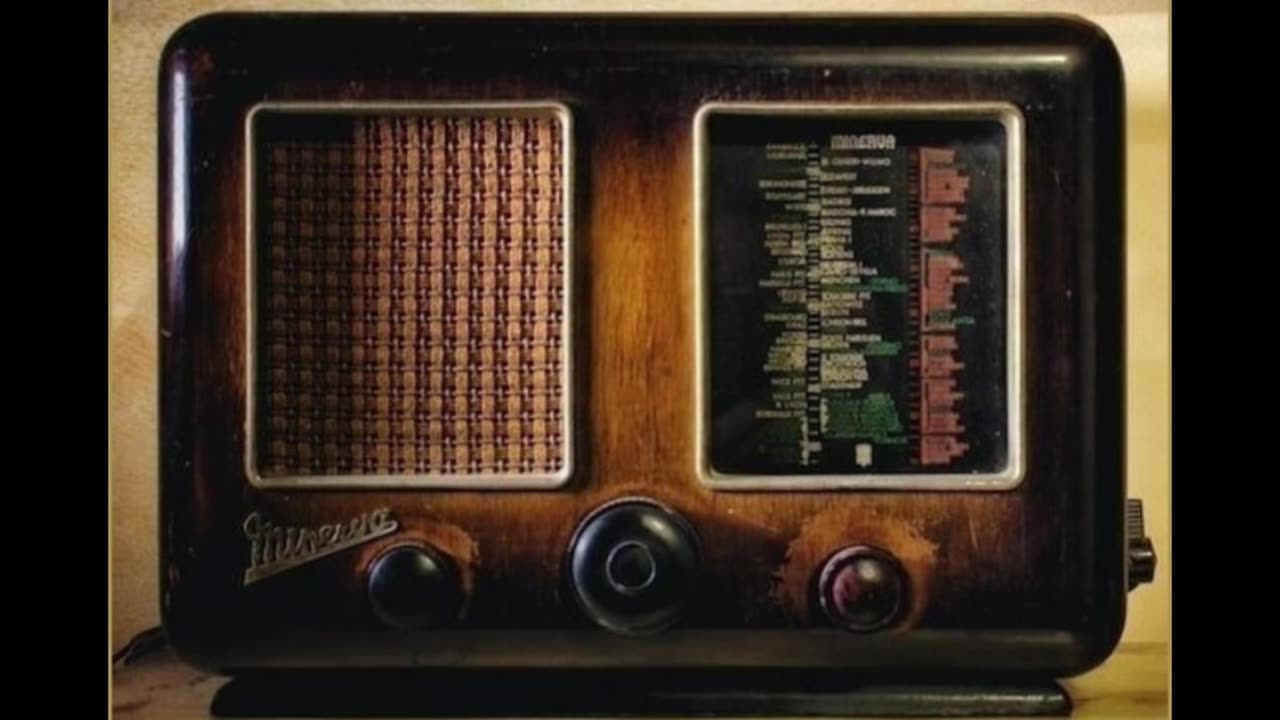Premium Only Content

The War Of The Worlds by H. G. Wells (The 1967 BBC Radio Dramatization)
The 1967 BBC Radio Dramatization of The War of the Worlds is a faithful adaptation of H.G. Wells' classic science fiction novel originally published in 1898. This radio production stands out as one of the several adaptations of Wells' iconic tale, which recounts the terrifying invasion of Earth by Martians. However, while Orson Welles' 1938 broadcast famously caused widespread panic in the United States due to its realistic format, the BBC’s 1967 version took a more straightforward, narrative-driven approach.
The story, as in the original novel, begins with an unnamed narrator describing strange occurrences in the night sky, including bursts of light seen on the surface of Mars. Shortly thereafter, cylindrical objects begin falling to Earth, heralding the arrival of the Martians. The story unfolds as the Martians—armed with advanced weaponry like the devastating heat-ray—begin their attack on London and the surrounding English countryside, wreaking havoc on the helpless human population.
The radio dramatization closely follows the novel’s structure, detailing the narrator’s flight through a ravaged England as he witnesses the brutal efficiency of the Martians. The broadcast captures the sense of dread and helplessness as entire towns are obliterated by the invaders, and humanity’s advanced technology proves powerless against the Martians' seemingly invincible machines.
The BBC’s 1967 production leans heavily into the atmosphere of creeping dread, employing sound effects and music to convey the terror of the Martian invasion. The format relies on voice acting and audio cues to create vivid imagery, from the sounds of the heat-ray burning through cities to the clanking of the Martian tripods as they march across the countryside. The actors’ performances, combined with the use of soundscapes, help immerse the listener in the catastrophic events, while maintaining a sense of realism and immediacy.
Unlike the more dramatized breaking news format of Orson Welles’ earlier version, the BBC production adheres more closely to the novel’s narrative style. The story is told through the perspective of the narrator, and the dramatization retains the Victorian setting, adding to the period-specific atmosphere. The radio play also maintains a level of philosophical reflection, capturing the narrator’s existential musings on the collapse of civilization and humanity’s fragile place in the universe.
Much like Wells' original text, this adaptation underscores humanity’s vulnerability in the face of superior technology and intelligence. The 1967 radio dramatization captures the sheer scale of the destruction wrought by the Martians and the futility of human resistance.
As with Wells' novel, the Martian invasion in the radio drama can be seen as an allegory for colonialism, with the technologically superior Martians treating humans as expendable creatures in much the same way European colonists treated native populations.
The radio version also grapples with themes of survival, particularly as the narrator encounters various other characters during his flight, including a curmudgeonly artilleryman who dreams of resisting the Martians from underground and a religious figure who succumbs to despair.
This BBC dramatization is a notable part of the rich legacy of The War of the Worlds adaptations, which have ranged from radio to film, television, and even musical versions. While less well-known than Orson Welles’ 1938 version, the 1967 BBC production has its own place in the history of British science fiction adaptations. It is remembered for its commitment to staying true to the atmosphere and tone of Wells’ novel, utilizing radio's strengths to create an immersive and chilling experience for listeners.
Though the dramatization was released well before the internet and the era of widespread audio preservation, it is occasionally referenced in discussions of mid-20th-century radio adaptations and the BBC’s legacy of high-quality audio drama.
About the Author:
H.G. Wells (Herbert George Wells, 1866-1946) was an English writer, historian, and social commentator, widely regarded as one of the most influential authors of the early 20th century. Best known for his pioneering works of science fiction, such as The War of the Worlds, The Time Machine, and The Invisible Man, Wells also wrote extensively on social, political, and philosophical topics.
Wells was a committed advocate for social reform and was deeply involved in the intellectual and political debates of his time. He was a member of the Fabian Society, a British socialist organization that aimed to advance the principles of democratic socialism through gradual reforms rather than revolution. His interest in social issues and his belief in the power of science and education to improve society are reflected in many of his works, including The Open Conspiracy.
Wells was a member of the Fabian Society, a British socialist organization advocating for gradual, democratic reforms rather than revolutionary change. He engaged in political debates and was known for his radical views on social reform, class inequality, and the future of human society. Although he supported socialism, he was often critical of political parties and institutions, which he felt were too slow or corrupt to bring about real change.
Wells’ personal life was often as controversial as his writings. He had multiple affairs, including one with feminist and author Amber Reeves, which heavily influenced The New Machiavelli. The affair strained his relationship with the Fabians, and this personal experience is mirrored in the novel’s exploration of sexual morality, personal ambition, and political pragmatism.
H.G. Wells is widely regarded as one of the founding fathers of science fiction, but his contributions to literature extend far beyond that genre. His explorations of political, social, and philosophical issues influenced not only his contemporaries but also future generations of writers and thinkers. His predictions about future technologies, warfare, and society were often uncannily accurate.
Wells was deeply influenced by Charles Darwin’s theory of evolution, which shaped his views on human nature, society, and progress. His writing style combined a fascination with science and the possibilities of the future with a deep skepticism of human nature and institutions. His works often reflect his belief that human progress requires a balance between scientific advancement and ethical responsibility.
-
 10:27:56
10:27:56
Deus Meum Que Jus
17 days agoThe Tibetan Book of the Dead
712 -
 3:02:18
3:02:18
Barry Cunningham
5 hours agoBREAKING NEWS: PRESIDENT TRUMP THIS INSANITY MUST END NOW!
82.9K146 -
 DVR
DVR
StevieTLIVE
4 hours agoWednesday Warzone Solo HYPE #1 Mullet on Rumble
29.6K -
 5:58
5:58
Mrgunsngear
5 hours ago $2.88 earnedBreaking: The New Republican Party Chairman Is Anti 2nd Amendment
23.2K8 -
 2:28:35
2:28:35
Geeks + Gamers
5 hours agoGeeks+Gamers Play- MARIO KART WORLD
24.6K -
![(8/27/2025) | SG Sits Down Again w/ Sam Anthony of [Your]News: Progress Reports on Securing "We The People" Citizen Journalism](https://1a-1791.com/video/fww1/d1/s8/6/G/L/3/c/GL3cz.0kob.1.jpg) 29:34
29:34
QNewsPatriot
5 hours ago(8/27/2025) | SG Sits Down Again w/ Sam Anthony of [Your]News: Progress Reports on Securing "We The People" Citizen Journalism
18.5K2 -
 25:12
25:12
Jasmin Laine
10 hours agoDanielle Smith’s EPIC Mic Drop Fact Check Leaves Crowd FROZEN—Poilievre FINISHES the Job
22.3K23 -
 11:33:26
11:33:26
ZWOGs
13 hours ago🔴LIVE IN 1440p! - SoT w/ Pudge & SBL, Ranch Sim w/ Maam & MadHouse, Warzone & More - Come Hang Out!
12.5K -
 2:35:34
2:35:34
This is the Ray Gaming
3 hours ago $0.15 earnedI'm Coming Home Coming Home Tell The World... | Rumble Premium Creator
7.43K -
 9:42:31
9:42:31
GrimmHollywood
12 hours ago🔴LIVE • GRIMM HOLLYWOOD • GEARS OF WAR RELOADED CUSTOMS • BRRRAP PACK •
8.38K